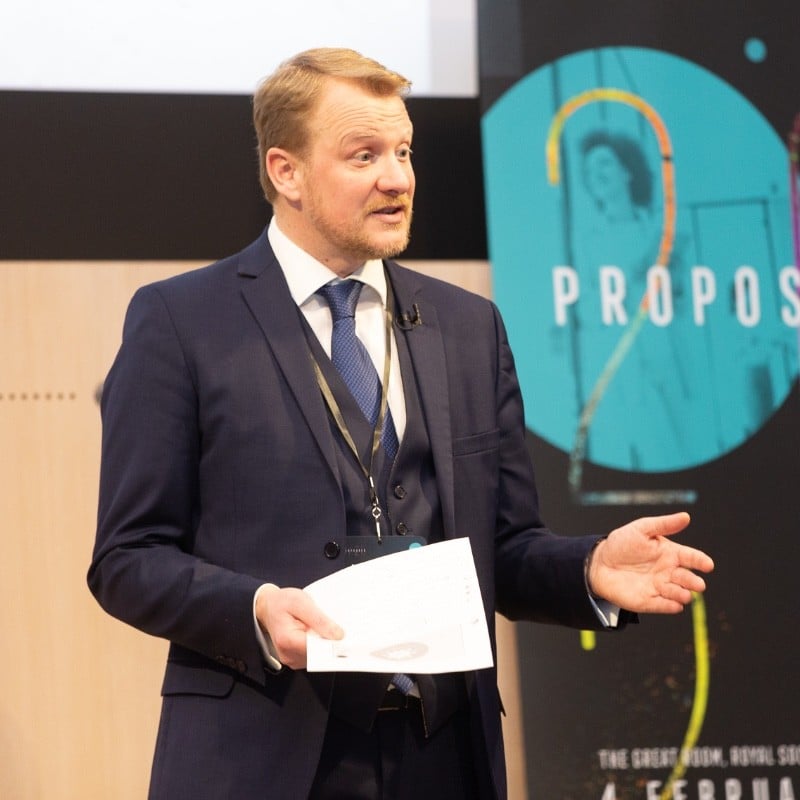Claiming to be an expert is risky. The title invites challenge and can prove redundant in times of radical change like we’ve seen this year. As I’m learning through my doctoral research, ‘expert’ is an ego-fuelled cherry that sits perilously atop a thin and pointy cake.
Why? Because the process of getting progressively better at what we do leads to greater focus upon an ever-narrowing field of study. Eventually we’ve polished a pea-sized nugget of unmatched wisdom that shines brightly, albeit for a moment, until someone questions it or builds upon our work. Intellectual property, it seems, is like flotsam in a river flood: hold onto it while you can, while knowing that you really ought to be using it as a rudder to steer you ahead of the flow.
Lifelong learning became intensely apparent to us this year as we adapted to new working practices brought about by the lockdowns. Twelve months ago, I’d never heard of Zoom or Teams. I was happily locked away with 48 fellow ‘experts’ in a bid bunker in Portsmouth, working through 600 documents that formed the biggest RFI I’d ever seen. The walls of the bid room were covered in notes, its whiteboards were filled with multi-coloured scribbles, and there was the familiar funky aroma from a team that hadn’t been home in several days. Was this best practice? For such intense analysis and collective thinking, I’d have said so. But not so today. These days we’re working mostly from home, using technology that enables us to collaborate, enjoy more time with our families, and be close to a shower and washing machine. But I do miss close contact with my friends and colleagues.
Talking to Jon Williams the other day, he remarked on how ‘the world’s gone landscape’ as the 16:9 view of our computer screens has replaced the traditional portrait orientation of printed materials. A new window to the world? It’s a new perspective, a result of how our bidding landscape has changed because of the pandemic. With it comes new learning.
I’d have been the first person to say that co-location is the best way for teams to gel and workshops to be most creative. But I was the guy driving 900 miles a week from bid bunker to bid bunker, maintaining my presence amongst my teams, coaching them and leading workshops. This hardly seems smart now. Those four hours of dead time behind the wheel each day cannot be seen as best practice. If anything, it was surprisingly dumb behaviour for a so-called expert.
My daughter, who is ten and an all-out Roblox gamer, knows that I’m not smart.
“Daddy!” she cries, “You’re a total Noob!”
“A total what?” I reply.
“A Noob! A total and utter Noob! All that time AFK!”
“Erm, AF-what?”
“AFK! Away From Keyboard! It’s what we gamers say when we have to dash to the toilet or go for food.”
“Oh,” I reply, “and a Noob is what?”
“You don’t even know what a Noob is?” she yells, “In that case, you’re a MEGA NOOB!”
It’s humbling to be outsmarted by a ten-year-old. She’s since taught me that Noob is short for ‘Newbie’: someone who’s new to the game and needs to learn how to play it. How quickly the master can become the apprentice, and vice versa.
I’m especially rubbish at gaming on an iPad. I was taught to type with my fingers and not solely with my thumbs, so I can’t keep up with my ten-year-old opponent. But with more than 20 years in bidding? I was hardly new to that familiar game. But that was the problem. It was too familiar. I’d fallen into the trap of ‘sleepwalking’: working on autopilot and not constantly questioning the efficiency and effectiveness of things that have worked for me in the past. I’d become the bidding equivalent of a one-finger typist.
The philosopher Bertrand Russell said, “It’s a healthy thing now and then to hang a question mark on the things you have long taken for granted.” It supports Eckhart Tolle’s thoughts about the need to evolve or die: “If the structures of the human mind remain unchanged,” he said, “we will always end up re-creating the same world, the same evils, the same dysfunction.” So, with our new ‘landscape perspective’, I encourage you to embrace the ways in which the past year have forced us to rethink the norms of our profession and question our sense of expertise within it.
Maybe, as we accept that ‘virtual’ is the new norm, we should start using ‘AFK’ instead of ‘Out of Office’? (When working from home, we’re hardly ever ‘out’.) I pray that we don’t go back to the office-only ways of working and unnecessary commutes. We have our new normal. But ‘normal’ doesn’t sit well when we’re seeking to better ourselves. Our new comfort zone of cosy slippers and informal ‘out of camera’ attire might lead to complacency if we don’t innovate and learn. So, hold up your thumbs and seek out today’s unfamiliar.
“Embrace the ‘new’ and the ‘scarily different’. Be curious. Adapt. Reinvent yourself and your ways of working.”
Sure, we might struggle for a while but it’s better to be a humble learner than a know-it-all. As with the Roblox game, it’s fashionable to be a Noob.
Dr Nigel Hudson
As Adjunct Professor at Liverpool Business School, Nigel is the world’s first bid professor. He’s been writing for BQ since Issue 2 and is our resident professional development expert. He holds a doctorate in experiential learning with bidding, has coached more than 5,000 people, and as a Consultant Bid Director has won more than £5bn of business for his clients.
